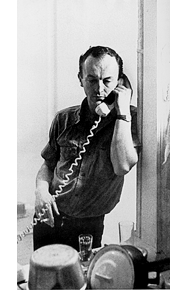
The Picture of Dorian Gray
Oscar Wilde
"If a man treats life artistically, his brain is his heart" (225).
This is probably the best book I've read so far this year...or even in the last few years. I had forgotten how charming and quick witted Wilde is.
In the beginning I was a bit concerned Wilde would spend too much energy dispelling the "art for art's sake" motto, which did take true form for the first 100 pages or so in gross detail--every action, discussion or otherwise was thinly veiled in that line. But, he eventually shrugged it off in an effort to pick up the story line--which he did sometimes in great leaps and bounds. His pacing was a bit off in a few sections, jolting the reader from one story line to the next, but he has always been fairly obvious in plot--it is dialogue that Wilde is best known for. And loved for. Rightfully.
I'm surprised I had not read this until now. I spent most of the book in commentary--underlining quips and musings, astonished at how obviously the man-love concept had been included, both Basil and Lord Henry tripping over themselves to lavish affections on dear Dorian, but never once really making it overtly sexual because of the criminal possibilities of the time. A few times I shouted "What a Queen!" but out of complete love and adoration for Wilde. I think that's why he was able to capture the nature of human interaction, both for men and women, with such a critical and observant eye. A few times I was surprised how he talked of women, but it wasn't in a hateful or condemning nature--merely cultural criticism that he was more than wont to capture in his texts. And, of course, the stereotypes and beliefs reinforced by such an age-old elitist culture have to come through someplace.
Here's some gems:
"But beauty, real beauty, ends where an intellectual expression begins. Intellect is in itself a mode of exaggeration, and destroys the harmony of any face. The moment one sits down to think, one becomes all nose, or all forehead, or something horrid. Look at the successful men in any of the learned professions. How perfectly hideous they are! Except, of course, in the Church. But then in the Church they don't think" (21).
"Always! That is a dreadful word. It makes me shudder when I hear it. Women are so fond of using it. They spoil every romance by trying to make it last forever. It is a meaningless work, too. The only difference between caprice and a lifelong passion is that caprice lasts a little longer" (40).
"Never marry at all, Dorian. Men marry because they are tired; women, because they are curious: both are disappointed" (62).
"My dear boy, no woman is a genius. Women are a decorative sex. They never have anything to say, but they say it charmingly. Women represent the triumph of matter over mind, just as men represent the triumph of mind over morals" (63).
"Experience was of no ethical value. It was merely the name men gave to their mistakes" (73).
"Besides, nothing makes one so vain as being told that one is a sinner. Conscience makes egotists of us all" (116).
"Is insincerity such a terrible thing? I think not. It is merely a method by which we can multiply our personalities" (154).
"There was romance in every place. But Venice, like Oxford, had kept the background for romance, and, to the true romantic, background was everything, or almost everything" (177).
"Actual life was chaos, but there was something terribly logical in the imagination...In the common world of fact the wicked were not punished, nor the good rewarded. Success was given to the strong, failure thrust upon the weak. That was all" (211).
"Life is not governed by will or intention. Life is a question of nerves, and fibres, and slowly built-up cells in which thought hides itself and passion has its dreams. You may fancy yourself safe and think yourself strong. But a chance tone of colour in the room or a morning sky, a particular perfume that you once loved and that brings subtle memories with it, a line from a forgotten poem that you had come across again, a cadence from a piece of music that you had ceased to play--I tell you Dorian, that is is on things like these that our lives depend. Browning writes about that somewhere; but our own senses will imagine them for us" (227).



